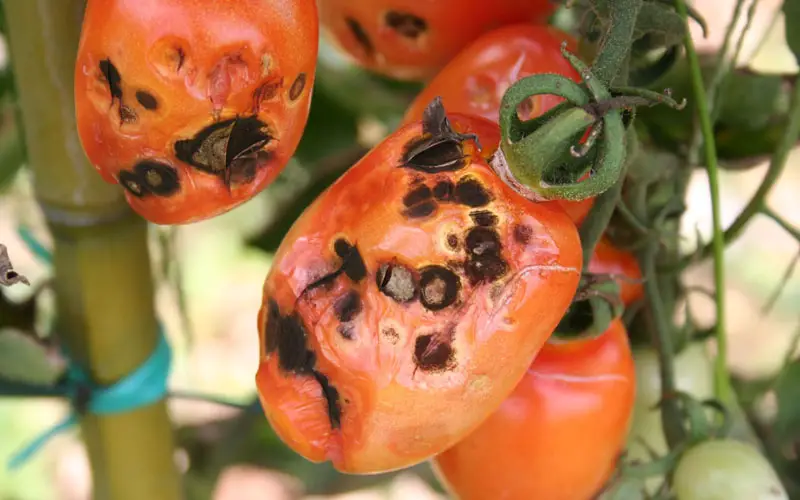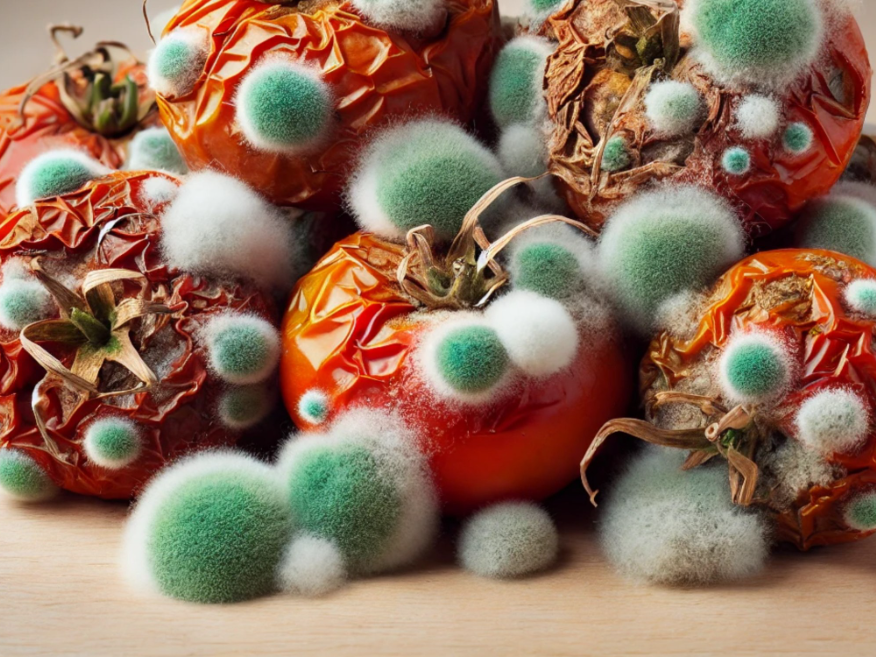We’ve all been there—opening the fridge to find a few squishy, overripe tomatoes at the bottom of the drawer. Maybe the skin is wrinkled, the flesh too soft, or even starting to split. The first instinct? Toss them into the trash. But what if we told you those damaged tomatoes could still be useful?
Most of us don’t realize that slightly spoiled tomatoes (without visible mold) can still serve meaningful, practical purposes. Instead of adding to food waste, you can repurpose them in eco-friendly, creative ways that are good for your wallet and the planet. From nourishing your garden to refreshing your skin and even cleaning your kitchen, the possibilities are more exciting than you’d think.
So before you throw away damaged tomatoes, take a moment to explore these four surprising uses that might just change your view on food waste forever.
1. Use Damaged Tomatoes as Natural Fertilizer
Tomatoes are rich in nutrients like potassium, nitrogen, and phosphorus—exactly what your garden soil needs to stay healthy and productive. Overripe or soft tomatoes can be turned into a simple and effective organic fertilizer for your plants.
Instead of throwing them away, try burying them a few inches deep in your garden soil or potting containers. As the tomatoes break down, they enrich the soil and release valuable nutrients. This method is especially useful for growing tomatoes, peppers, roses, or other acid-loving plants. Just be sure to chop them into smaller pieces and bury them deeply enough to avoid attracting pests.
Another great option is to include soft tomatoes in your compost pile. They break down quickly, adding moisture and nutrients to your compost mix. Just be cautious about adding moldy tomatoes, as they can introduce unwanted bacteria if your compost doesn’t reach high enough temperatures.
2. Make a Natural Pest Repellent for Your Garden
If you’re tired of bugs munching on your plants, here’s a natural, chemical-free solution: turn your damaged tomatoes into a homemade pest spray. Tomatoes contain compounds like tomatine that are known to repel certain insects, making them a surprisingly effective base for an organic repellent.
To make it, blend two to three soft (but not moldy) tomatoes with water until you get a smooth liquid. Strain the mixture to remove chunks and pour the liquid into a spray bottle. You can optionally add a few drops of mild dish soap to help the spray stick to plant leaves. Apply it to the leaves and stems of plants affected by pests like aphids or caterpillars. Repeat every few days for continued protection.
This tomato spray won’t harm your plants or soil, and it’s safe for use on vegetables, herbs, and even flowers. It’s a simple way to reduce chemical use in your garden while putting old tomatoes to good use.
3. Refresh Your Skin With a DIY Tomato Face Mask
Believe it or not, tomatoes—even when overripe—are loaded with skincare benefits. Thanks to their natural acidity and high vitamin C content, they can help cleanse the skin, tighten pores, and reduce oiliness. Instead of buying expensive skincare products, you can create a DIY face mask using a soft tomato straight from your kitchen.
Simply mash the tomato into a smooth pulp and mix it with a teaspoon of honey or plain yogurt. Apply the mixture to your face, avoiding the eye area, and let it sit for about 10–15 minutes. Rinse with lukewarm water and pat your skin dry. The result? Fresher, smoother skin that feels clean and revitalized.
Tomato masks are great for people with oily or acne-prone skin, as they help balance oil production and gently exfoliate dead skin cells. However, if you have sensitive skin, do a patch test first to avoid irritation. And remember—don’t use moldy tomatoes on your skin. Only use overripe ones that are still safe to handle.
4. Create a Natural Kitchen Degreaser
You probably never thought tomatoes could help clean your kitchen, but they can! Their natural acidity makes them effective at cutting through grease and grime. When combined with simple pantry ingredients like baking soda or vinegar, overripe tomatoes become the base for a powerful, non-toxic degreaser.
To make your own, mash one overripe tomato and mix it with a tablespoon of baking soda. You’ll get a paste-like texture that can be applied to greasy surfaces like stovetops, countertops, or even pots and pans. Let it sit for a few minutes, then scrub with a sponge and rinse clean. The acidity of the tomato helps dissolve grease, while the baking soda provides gentle abrasion.
If you prefer a spray cleaner, you can also blend tomatoes with water and white vinegar. Strain the mixture, pour it into a spray bottle, and use it to clean cutting boards, tile surfaces, or even inside your refrigerator. It’s a safe, natural alternative to store-bought chemical cleaners—and a great way to reduce food waste in the process.
A Word of Caution: What NOT to Reuse
While the tips above apply to tomatoes that are bruised, overripe, or slightly damaged, it’s important to avoid reusing tomatoes that are heavily moldy, rotten, or have a strong foul smell. Mold can carry harmful bacteria and spores that are unsafe for both humans and plants. If a tomato is completely covered in fuzzy mold or leaks liquid, it’s time to let it go—ideally into a compost system if local regulations permit it.
Always use common sense and prioritize safety. When in doubt, don’t use it.
Why Reusing Damaged Tomatoes Matters
Reusing slightly spoiled tomatoes isn’t just about being frugal—it’s also an act of sustainability. Food waste is a global issue, contributing to greenhouse gas emissions and environmental degradation. By finding ways to reuse ingredients that would otherwise be thrown away, you’re helping reduce waste and make the most of every grocery purchase.
Plus, these tips aren’t just good for the planet—they’re good for you. Whether you’re saving money on garden supplies, household cleaners, or skincare products, every small action adds up to meaningful change.
Next time you find a tomato that’s past its prime, don’t rush to throw it away. With just a little creativity, you can turn damaged tomatoes into natural fertilizer, pest repellent, skin treatments, or even kitchen cleaners. These simple, safe, and practical uses will not only surprise you but also help reduce waste and support a more sustainable lifestyle.
So give those tomatoes a second chance—you’ll be amazed at how useful they still can be.
